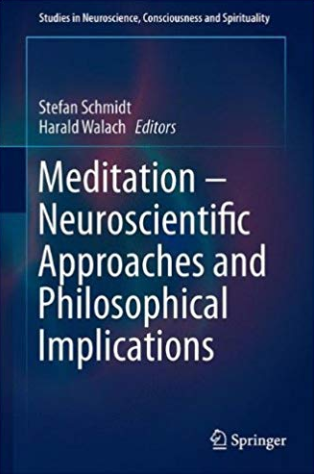The Neurobiology of Meditation and Mindfulness, by Tobias Esch
A decade later [after Richard J. Davidson's research], Esch (2014) reviewed the effects of meditation and mindfulness that can be detected in the brain as functional and structural alterations, especially in areas related to attention and memory, interoception and sensory processing, and self-regulation, including control of stress and emotions.

Book description
This volume features a collection of essays on consciousness, which has become one of the hot topics at the crossroads between neuroscience, philosophy, and religious studies. Is consciousness something the brain produces? How can we study it? Is there just one type of consciousness or are there different states that can be discriminated? Are so called “higher states of consciousness” that some people report during meditation pointing towards a new understanding of consciousness?
Meditation research is a new discipline that shows new inroads into the study of consciousness. If a meditative practice changes brain structure itself this is direct proof of the causal influence of consciousness onto its substrate. If different states of consciousness can be linked with properties and states of the brain this can be used to study consciousness more directly. If the sense of self is modifiable through meditative techniques and this can be objectively shown through neuro-imaging, this has profound implications for our understanding of who we are. Can consciousness, in deep states of meditative absorption, actually access some aspect of reality which we normally don't? Meditation research can potentially foster us with a new access to the phenomenological method in general. This has even been branded with a new catch-phrase: Contemplative Science. It brings together the most modern neuroscientific approach and the most advanced phenomenological methodology of studying the mind from within, through highly skilled self-observation that has gone through many thousand hours of honing the capacity to look carefully, without distraction.
This book addresses these issues by bringing together some of the leading researchers and thinkers in the field. The scope of the volume reaches from first person neuroscience to Indian philosophy, from pedagogic applications to epistemological aspects and from compassion meditation to the study of brain activity.

Tobias Esch at Witten/Herdeck University








































































0 comments
Sign in or create a free account